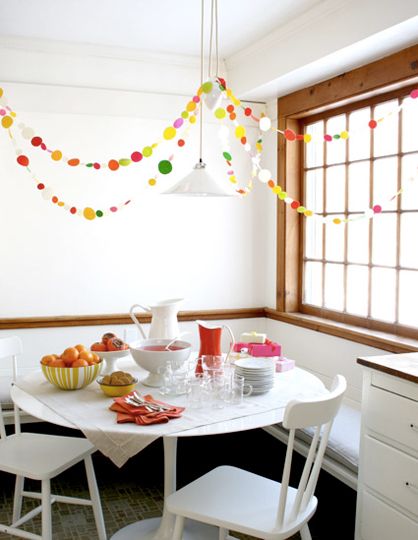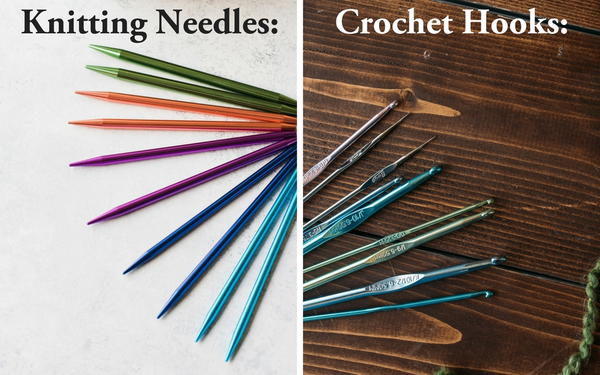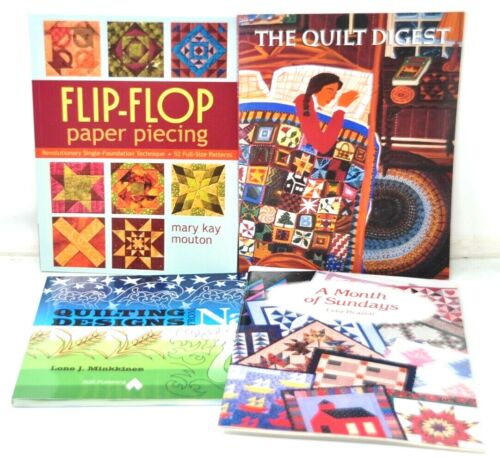
If you're going to knit something, it is important to select the right knitting tool for you. There are many different types of knitting tools available: Straight, Cable and Double-pointed. It is crucial to decide which type of knitting needle you prefer before you start. This article will help you decide what style of needle is right for you. These are some guidelines for choosing the right knitting needle.
Straight knitting needles
There are several different types of knitting needles. Some are circular, some are straight. Each has its advantages and disadvantages. It is easier to store and cheaper to use a straight knitting needle if your first time. However, if you are an experienced knitter, you can use a circular needle as well. Below are some advantages to each type. It is a good idea if you are new to knitting to try both and then decide which one you prefer.

Double-pointed needles
There are two main types, double-pointed circular knitting needles and double pointed circular. Double-pointed needles can catch more stitches than circular needles. However, they are generally longer than double pointed needles. While double-pointed can be shorter in length, their tips are longer and more sharp. Knitting tightens your stitches. They work better than circular needles for catching yarn.
Cable needles
When you start knitting, cable needles are a necessity for your projects. These needles hold the yarn in the front and back. Cable needles are written as cf or cb in knitting patterns, and they are commonly used for knitting sweaters and sweater-like items. The process will be easier if you select the right type of cable needle to suit your project. For more information on cable needles, visit a knitting store to request a free trial.
Flexible knitting needles
Flexible knitting needles are the best choice if you're searching for the best. These plastic needles can be softened and heated to make them a great choice for arthritis sufferers or those who just want to have the most enjoyable knitting experience. They also don't have any metal tips which can slow your knitting speed. You will find them in many knitting shops and a range of styles and brands.

Knitting needles in aluminum and steel
There are many options available when it comes time to choose knitting needles. There are many options when it comes to knitting needles. You can choose from plastic, carbon fibre, or wooden ones. Also, you can buy double-pointed, circular, and other sizes. The type and purpose of your knitting will affect the choice of needle. For example, silk yarn is easier to work with on wooden needles than on metal needles. Metal needles are best for knitting small pieces. It is worth trying out different types to determine which one you like best.
FAQ
What are some hobbies that seniors might enjoy?
Senior citizens should have fun activities that they enjoy doing. They should also be active and take part in activities such as sports or other physical activities.
They may want to join clubs that allow them to meet others with similar interests. As they age, this will help them feel less alone.
Senior citizens need to be aware of the latest trends. For example, they could follow fashion, art, music, literature, politics, etc.
What are the competitive hobbies?
Swimming, running, cycling, golfing and tennis are some of the competitive sports.
They're a great way to get social interaction and are enjoyed by those who love physical activity.
You'll likely find others who are interested in your hobby if it involves physical activity.
You might consider joining a group or club that meets regularly to play together in sports.
You could also opt to take part in team games that involve playing alongside others.
These include soccer (soccer), rugby, netball and hockey.
There are many different types of competition.
Some competitions are organized for purely recreational purposes.
Others are used to assess competitors' abilities.
Yet, there are others that reward exceptional performance.
These cases result in prizes for the winners.
Other competitions are designed to test the strength and stamina of competitors.
These are called endurance events.
For example, marathon races, triathlons, Ironman Triathlon, etc.
Before participating in these events, athletes often train hard.
To prepare them mentally and physically, they will be following a strict training regimen.
They might need to travel some distance during preparation.
It's important not to forget that not all athletes are able to compete in every type event.
How can I find a hobby?
You may feel overwhelmed when you start your quest to find a hobby.
You may be thinking, "I'm just not artistic" or "I hate sports," or perhaps "I don’t even know what I know."
The truth is that you likely already have a lot experience in your chosen hobby.
It's simply that you haven’t yet realized it.
Take a good look at what you have in your house. What amount of stuff do you have?
Do you have any old toys lying around?
Maybe you have a collection of books or magazines.
Maybe you've always wanted to learn how to cook.
Or maybe you'd really like to start playing guitar again.
It doesn't matter what it is, you can probably turn it into a hobby.
The key is to realize that you already have plenty of experiences to draw upon.
You will find a hobby you love once you have it.
What are your educational hobbies and interests?
An educational hobby is an activity where you learn something by doing it. You could choose to learn how to play an instrument or play sports.
It should be enjoyable and have fun. You don't necessarily have to do this all the time. But if it becomes boring, then think about what you could be doing.
Also, you need to be careful not to spend too much on these activities. They can end up costing more than you think.
Why do we need hobbies
Hobbies can be a part of your life because they provide you with time to unwind, recharge, think creatively as well as the chance to exercise, socialize, and relax. You can also learn new skills and develop lifelong interests.
Hobbies can help us find meaning and purpose.
These can often be a great way to get some extra time while you have nothing else.
They're even fun!
If you don't find time for hobbies, it's likely that you don't have enough time for any other activities.
So take a look at all the options available to you. If you don't have a hobby yet, then maybe you should start one today!
How do I get started with my new hobby?
The first step toward starting any new hobby is to decide what kind of activity you'd like to pursue.
Once you have decided on your subject, passion is the key.
Understanding why you are interested in a hobby is important. This will help you to find your purpose and direction.
Once you've chosen the hobby you would like to pursue you can start planning.
Consider the equipment that you will need.
Consider whether classes or seminars are necessary.
Ensure that you have enough space for your hobby.
Consider joining a club, or group. These groups usually offer support and advice.
Finally, think about how much money you would need to spend on your hobby.
Statistics
- A new survey by Pew Research Center of teens ages 13 to 17 finds that 36% of girls feel tense or nervous about their day every day; 23% of boys say the same. (pewresearch.org)
- Almost 80% of people claim to have no hobby. (hobbylark.com)
- Much of this decline reflects the fact that teens are less likely to work today than in the past; among employed teens, the amount of time spent working is not much different now than it was around 2005. (pewresearch.org)
- 37% Video Games 36% Travel 36% Health and Fitness (quizexpo.com)
- Studies show that just six minutes of reading can reduce stress levels by 60 percent. (oberlo.com)
External Links
How To
How to learn a musical instrument
There are many methods to learn music. You could go to a school or buy a book. You could also take lessons from an experienced musician, watch videos online, and so on. These are just a few tips and tricks to help you get started if you're determined to make your own path.
-
Find something you are interested in. Try another instrument if you don't love any of the ones you see. If you don't like playing an instrument, it would be difficult to learn how to play it.
-
Be patient. Learning anything new takes some time. Do not expect to be able to master every aspect of the subject immediately. Instead, you should continue practicing every day.
-
Make sure you practice regularly. Even if you feel tired, keep practicing. This will make sure you don't forget the lessons you have learned.
-
Choose a good place to practice. You want to be in a place where you are not disturbed by others. Be sure to not distract others. Avoid loud music, for example.
-
Have fun. Music should be enjoyed. Have fun with your practice. Enjoying yourself will motivate you to continue going at it.
-
Set goals. Set goals. You'll know exactly what you must achieve. This will make it impossible to fail.
-
Keep track of how you are doing. Note down your successes and mistakes. You will be able to improve your skills over time by writing down all of your achievements and failures.
-
Take breaks. Sometimes, you will just need to stop for a while. You will be able to take breaks and think about the things you are doing.
-
Ask questions. If you have any questions or doubts about the instrument, ask other people. They may be in a position to assist.
-
Listening is the best way to learn. Many musicians love to listen to and imitate songs. This helps them understand the basic concepts behind the song.
-
Read books. Watching videos or taking classes will not teach you as much as reading books. You will also find information in books that you won't find anywhere else.
-
Get involved in a band. Playing with others will force you to practice more. Plus, you'll meet people with the same interests as you.
-
Watch tutorials. Tutorials are short videos which explain many topics in great detail. These videos typically focus on one aspect of the instrument. Watching tutorials can help you understand difficult parts of the instrument.
-
Different methods are possible. Some people prefer to learn via lectures while others prefer to read. Find what works best for your learning style.
-
Practice makes perfect. The truth is that nobody becomes an expert overnight. It takes a lot of work to be able to perform well.
-
Get along with other musicians. Listening to your fellow musicians perform their favourite songs can help you learn quicker.